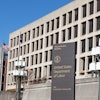BEIJING (AP) -- China is launching a four-month food safety campaign Wednesday that will include inspections of food makers to weed out illegal or excessive chemicals in food, in the country's latest move to restore trust hurt by a tainted milk scandal.
The drive will be jointly conducted by nine central government departments and will target food and additive producers across the country, the Health Ministry said in a statement.
The announcement comes amid efforts to address concerns at home and abroad about how China is tackling its worst food safety crisis in years. The ministry acknowledged last week that six babies likely died and 294,000 infants suffered urinary problems from drinking infant formula contaminated with the industrial chemical melamine.
Such campaigns are part public relations drive, part crackdown by Chinese authorities as they try to address the country's chronic food product safety woes. In January the government claimed success in an earlier four-month food safety drive that sought to ease worries about the safety of the country's food supply ahead of the Beijing Olympics in August.
Despite that claim, the milk scandal broke in September and the government later said the dairy at the center of the crisis knew as early as last year that its products were tainted with melamine and that the company and local officials first covered it up.
"The tainted milk scandal shows illegal production of food products and the use of nonfood substances are not isolated incidents," Health Vice Minister Chen Xiaohong was quoted as saying by the China Daily newspaper.
The Health Ministry said its newest drive will be conducted in three phases, with companies first asked to conduct internal checks over the next month.
Authorities will then take two months to inspect producers of meat, dairy and other products rich in protein -- deemed "high-risk" -- and conduct checks on markets. The third phase in the last month will focus on stemming the supply of illegal food additives by targeting producers and punishing companies that use such chemicals.
Illegal chemicals from past domestic food scares will be among those targeted, including malachite green, a possibly cancer-causing chemical used to treat fungal infections in fish, and the cancer-causing industrial dye sudan red, which was found used to color egg yolks.
The milk crisis focused attention on the widespread use of melamine in the country's dairy industry.
Dairy suppliers are accused of adding melamine, a nitrogen-rich chemical used in the production of plastics, to watered-down milk to make it appear higher in protein on quality tests. Though melamine is not believed harmful to humans in tiny amounts, higher concentrations produce kidney stones and in serious cases can cause kidney failure.
China last year ratcheted up inspections and tightened restrictions on food production and other industries, particularly exports, after manufacturers were found to have exported tainted cough syrup, toxic pet food and toys decorated with lead paint.
Despite the improvements, China continues to have trouble regulating its countless small and illegally run operations, which are often blamed for introducing illegal chemicals and food additives into the food chain.






















